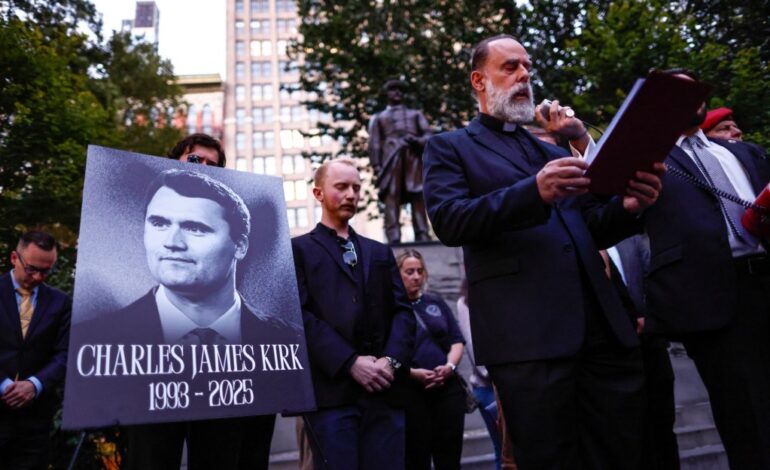Charlie Kirk’s Death Sparks Political Blame Game

The assassination of conservative activist Charlie Kirk on March 15, 2024, has ignited a fierce debate across the political spectrum. With fingers pointed in all directions, both the left and the right have sought to assign blame for the tragedy. While some attribute Kirk’s death to right-wing extremism, others claim the left’s rhetoric is to blame. The reality is more complex, and ultimately, the responsibility lies with the shooter.
The alleged shooter, identified as Tyler Robinson, is at the center of this controversy. In the aftermath of the incident, discussions have focused on the influence of political extremism on individuals. While external factors can indeed shape behavior, it is critical to remember that the decision to commit such a heinous act rests solely with the individual. As discussions unfold, it is essential to recognize that blaming societal issues can divert responsibility from the shooter.
Many commentators have expressed deep sympathy for Kirk’s family, particularly his two young children who now face a future without their father. The emotional toll on his wife, who must navigate the aftermath of this tragedy, is also significant. The visceral impact of violence reverberates through families and communities, a reality that should not be overlooked in political discourse.
In the wake of Kirk’s killing, Congressman Dave Min of California issued a statement on social media condemning political violence. He initially stated, “Political violence is unacceptable. Full stop,” asserting that no one should feel threatened for their views. However, as the media narrative developed, Min’s tone shifted. Following the identification of Robinson as politically aligned with right-wing ideologies, he remarked, “Now that the Charlie Kirk assassin has been identified as MAGA, I’m sure Donald Trump, Elon Musk, and all the insane GOP politicians who called for retribution against the ‘RADICAL LEFT’ will now shift their focus to stopping the toxic violence of the RADICAL RIGHT.”
This statement, which went through multiple levels of review before publication, raises concerns about the potential consequences of inflammatory rhetoric. While political leaders have a responsibility to address violence, it is equally important to avoid exacerbating tensions with sweeping generalizations.
California Governor Gavin Newsom has similarly faced scrutiny for his comments linking political violence to the “poisonous populism of the right.” While he did postpone a politically charged event in the wake of Kirk’s death, many fear that such incendiary language could incite further violence. The implications of political rhetoric are significant, as they can influence individuals already prone to radicalization.
The narrative surrounding political extremism is not confined to one side of the aisle. Online platforms and public figures from both the left and right have engaged in a blame game that detracts from the core issue: the need for civil discourse. Recent analyses, including one from the Cato Institute, suggest that politically motivated murders are quite rare, and that extremist ideologies are not exclusive to any one group.
Recognizing the gravity of political violence is essential. The recent killings of liberal lawmakers in Minnesota demonstrate that violence does not discriminate based on ideology. Both sides have used the tragic event to advance their narratives, but this approach risks trivializing the human cost of such violence.
As discussions continue, it becomes clear that the focus should be on fostering a culture of dialogue rather than division. Political leaders and commentators have a crucial role in shaping public perception and behavior. By adopting a more measured tone, they can help reduce the likelihood of future violence.
The assassination of Charlie Kirk has opened a Pandora’s box of political blame, highlighting the urgent need for a shift in how political discourse is conducted. As society grapples with the implications of this tragedy, it is vital to remember that the pursuit of accountability should not come at the cost of nurturing a more respectful and understanding political environment.






